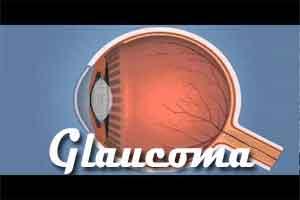- Home
- Editorial
- News
- Practice Guidelines
- Anesthesiology Guidelines
- Cancer Guidelines
- Cardiac Sciences Guidelines
- Critical Care Guidelines
- Dentistry Guidelines
- Dermatology Guidelines
- Diabetes and Endo Guidelines
- Diagnostics Guidelines
- ENT Guidelines
- Featured Practice Guidelines
- Gastroenterology Guidelines
- Geriatrics Guidelines
- Medicine Guidelines
- Nephrology Guidelines
- Neurosciences Guidelines
- Obs and Gynae Guidelines
- Ophthalmology Guidelines
- Orthopaedics Guidelines
- Paediatrics Guidelines
- Psychiatry Guidelines
- Pulmonology Guidelines
- Radiology Guidelines
- Surgery Guidelines
- Urology Guidelines
Study suggests glaucoma may be an autoimmune disease

Glaucoma, an eye disease which damages the retina and optic nerve and can lead to blindness and affects nearly 70 million people worldwide, may be an autoimmune disease, reports a new study from MIT and Massachusetts Eye and Ear published in the journal Nature Communications.
In a study of mice, the researchers showed that the body's own T cells are responsible for the progressive retinal degeneration seen in glaucoma. These T cells were found to be primed to attack retinal neurons as the result of previous interactions with bacteria that normally live in our body.
According to the researchers by blocking this autoimmune activity new treatments could be developed for glaucoma.
The researchers investigated immune cells in the retinas of mice and found the presence of T cells. Generally, T cells are normally blocked from entering the retina, by a tight layer of cells called the blood-retina barrier, to suppress inflammation of the eye. The presence of T cell was an unusual.finding.The researchers found that when the intraocular pressure goes up, T cells are somehow able to get through this barrier and into the retina.
Researchers further investigated the role of these T cells in glaucoma. The researchers generated high intraocular pressure in mice that lack T cells and found that while this pressure-induced only a small amount of damage to the retina, the disease did not progress any further after eye pressure returned to normal.
Further studies revealed that the glaucoma-linked T cells target proteins called heat shock proteins, which help cells respond to stress or injury. Normally, T cells should not target proteins produced by the host, but the researchers suspected that these T cells had been previously exposed to bacterial heat shock proteins. Because heat shock proteins from different species are very similar, the resulting T cells can cross-react with mouse and human heat shock proteins.. The researchers found that when they tried to induce glaucoma in these germ-free mice, the mice did not develop the disease.
Read Also: Eye drops with Turmeric-derivative may be new treatment of glaucoma
The researchers included human patients with glaucoma and found that these patients had five times the normal level of T cells specific to heat shock proteins, suggesting that the same phenomenon may also contribute to the disease in humans. The researchers' studies thus far suggest that the effect is not specific to a particular strain of bacteria; rather, exposure to a combination of bacteria can generate T cells that target heat shock proteins.
The researchers concluded that other components of the immune system may also be involved in the autoimmune process that gives rise to glaucoma. Further research is ongoing to investigate the possibility that this phenomenon may underlie other neurodegenerative disorders, and looking for ways to treat such disorders by blocking the autoimmune response.

Disclaimer: This site is primarily intended for healthcare professionals. Any content/information on this website does not replace the advice of medical and/or health professionals and should not be construed as medical/diagnostic advice/endorsement or prescription. Use of this site is subject to our terms of use, privacy policy, advertisement policy. © 2020 Minerva Medical Treatment Pvt Ltd